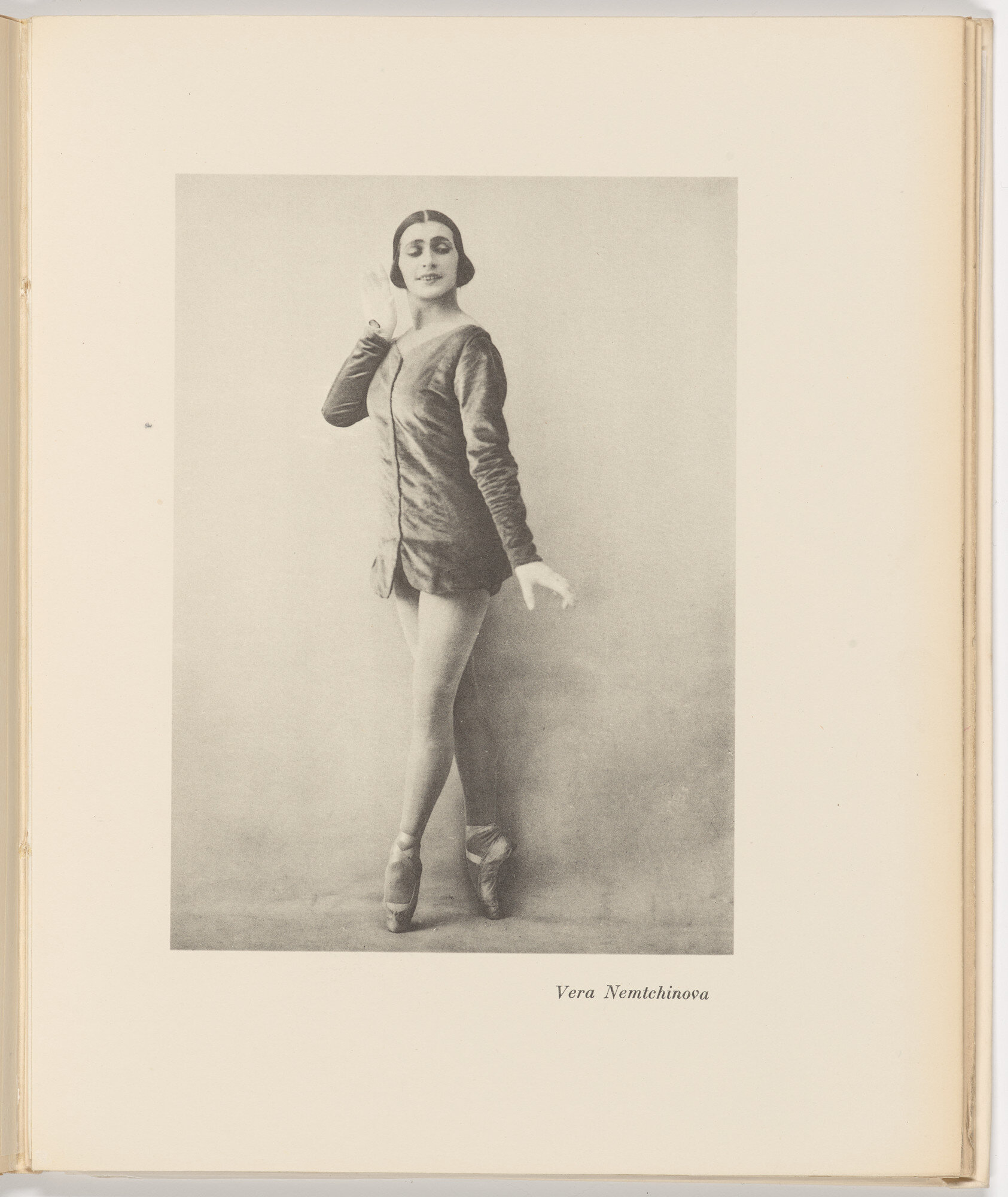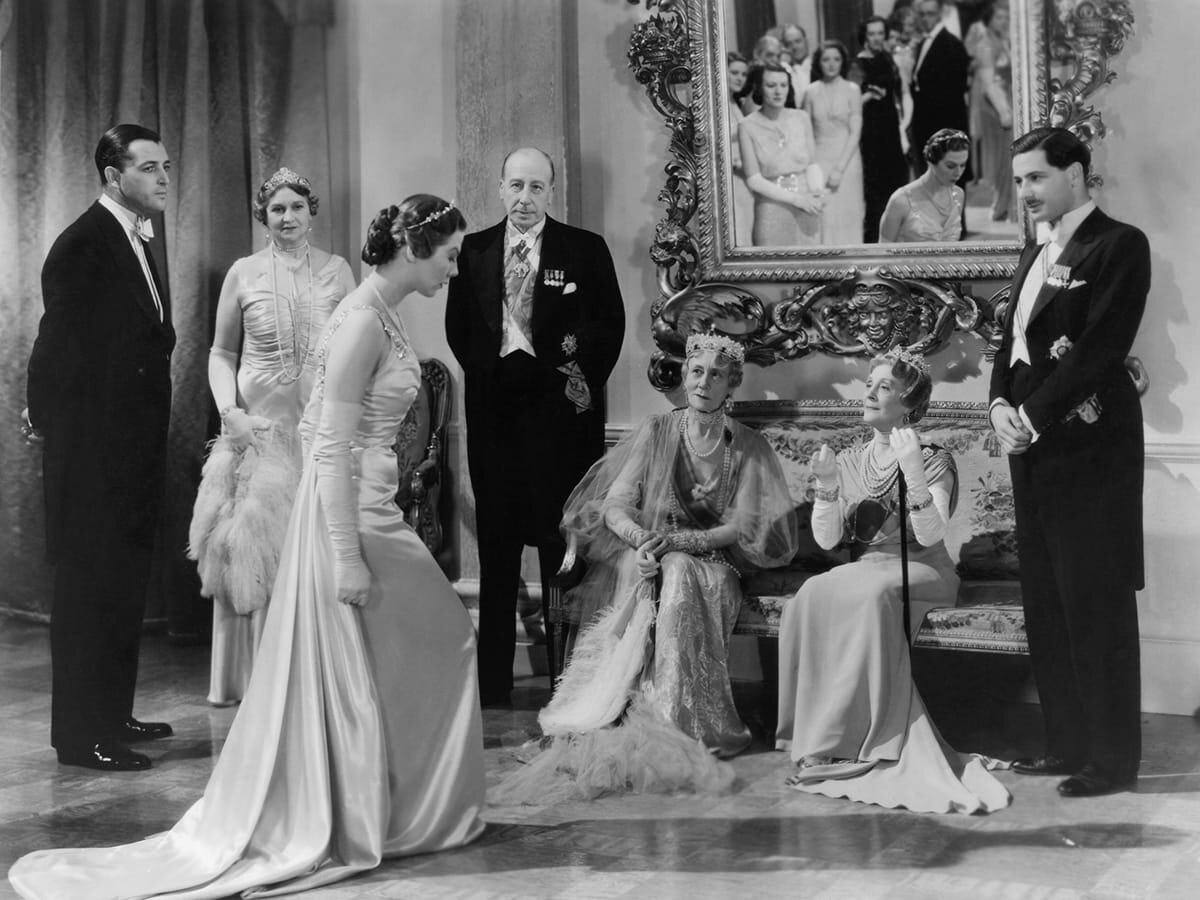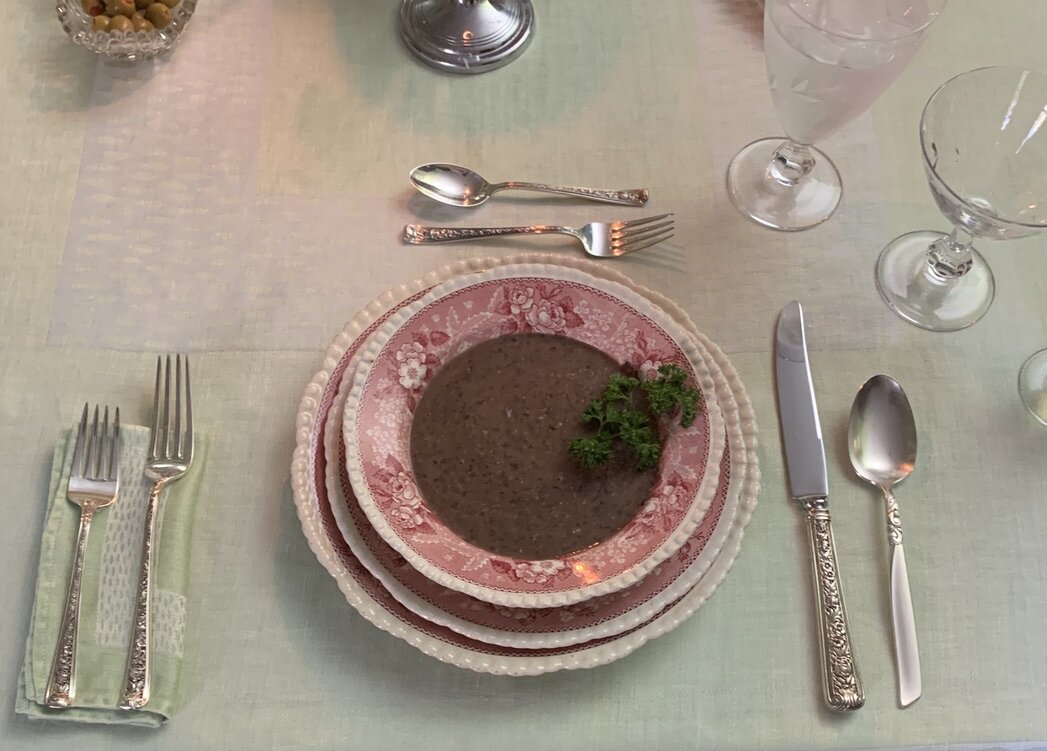Etiquetteer brought in a big haul of books for summer yesterday, from both the Boston Athenaeum (now reopened for members by appointment only) and Brattle Book Shop (please support the best surviving used bookstore in Boston with a purchase soon!), so let’s look over the catch, along with a couple titles from Etiquetteer’s own library.
DINNER PARTIES
First up, Fannie’s Last Supper: Recreating One Amazing Meal from Fannie Farmer’s 1896 Cookbook, by celebrity foodie Chris Kimball (2010), tells the story of researching and authentically preparing a twelve-course menu of the late Victorian period. While Etiquetteer is highly unlikely to go ferreting out calf’s brains for mock turtle soup or installing a coal stove in the kitchen, this little book already proves engaging because it’s set in a neighborhood Etiquetteer knows well, the South End of Boston.
Roberts’ Guide for Butlers and Other Household Staff, by Robert Roberts (1827), is a compendium of all sorts of advice for 19th-century house servants, with everything from laying the fireplace grates in the morning to setting out a dining room sideboard to show off the household’s possessions in best taste. There are also pages and pages of “receipts” for household cleaners and remedies; it’s astonishing how many uses there are for alum, chalk, and turpentine! One alarming entry is
“TO CURE THOSE THAT ARE GIVEN TO DRINK. Put, in a sufficient quantity of rum, brandy, gin, or whatever the person is in the habit of drinking, three large live eels, which leave until quite dead, give this liquor unawares to those you wish to reform, and they will get so disgusted against it, that though they formerly liked it, they will now have such an aversion to it afterwards . . . “
Etiquetteer is not going to recommend that you try this at home!
Vogue’s Book of Etiquette: A complete guide to traditional forms and modern usage, by Millicent Fenwick* (1948), remains one of the unsung Bibles of 20th-century manuals of manners. Her knowledge of how to put on a dinner of ceremony is unsurpassed.
Caviar: The Strange History and Uncertain Future of the World’s Most Coveted Delicacy, by Inga Saffron (2002), caught Etiquetteer’s eye because National Caviar Day is coming up on July 18. (Also because over 30 years ago Etiquetteer was given an exquisite monogrammed caviar bowl with traditional horn spoon, and has never yet used it for its intended purpose.) In the 19th century it was turtle soup that was the essential delicacy, so much so that the turtle population was made almost extinct. That’s the same sort of thing going on now with caviar, and with shark fin soup in Asia.
Dinner with Edward: The Story of an Unexpected Friendship, by Isabel Vincent (2016), appealed to Etiquetteer’s heart because it celebrates something that many still consider risky in the Time of the Coronavirus: sharing a meal in someone’s home. Etiquetteer does long for the day when a true dinner party may be held again!
AMPLIFYING BLACK VOICES
The Fire Next Time, by James Baldwin (1963), one of America’s most distinguished writers, is thought by critics to be “one of the most influential books about race relations in the 1960s.”
White People Do Not Know How to Behave at Entertainments Designed for Ladies & Gentlemen of Colour: William Brown’s African and American Theater, by Marvin McAllister (2003), tells a forgotten episode of American theatre (and etiquette) history, of the three year period in which William Brown, “a free man of color . . . opened a pleasure garden on Manhattan’s West Side . . . [catering] to black New Yorkers, who were barred from admittance to whites-only venues offering drama, music, and refreshment.” Brown retired from management in 1823 following “negative white reactions, verbal and physical.” Etiquetteer is fascinated to delve into this further.
The Black History of the White House, by Clarence Lusane (2011). Now anyone who knows Etiquetteer at all well knows that Etiquetteer was absorbed by the story of the White House, and the Presidents and First Ladies, from early childhood. Lillian Rogers Parks’ memoir of her time and her mother’s working there as housemaids, Backstairs at the White House, and J.B. West’s Upstairs at the White House about his decades as Chief Usher, have become cherished volumes. Here now is the history we aren’t taught in school, of the enslaved men who had to build the House in the first place, to those who were owned as servants by early Presidents. From Hercules, the enslaved cook of George Washington, through to the present day, this promises the other half of the story.
We Were Eight Years in Power: An American Tragedy, by Ta-Nehisi Coates (2017), examines both the post-Civil War period of Reconstruction as well as the Obama Administration. “This book also examines the new voices, ideas, and movements for justice that emerged over this period — and the effects of the persistent, haunting shoadw of our nation’s old and unreconciled history.”
AND FINALLY . . .
The Courtiers: Splendor and Intrigue in the Georgian Court at Kensington Palace, by Lucy Worsley (2010), covers a period of which Etiquetteer knows little, the reigns of George I and II. It looks to be quite naughty!
Perhaps you also have found some interesting summer reading? Please do share it with Etiquetteer, either on Facebook or Instagram!
*Please do not confuse with that delightful character actress Mildred Natwick. Still, they were never seen together . . .































